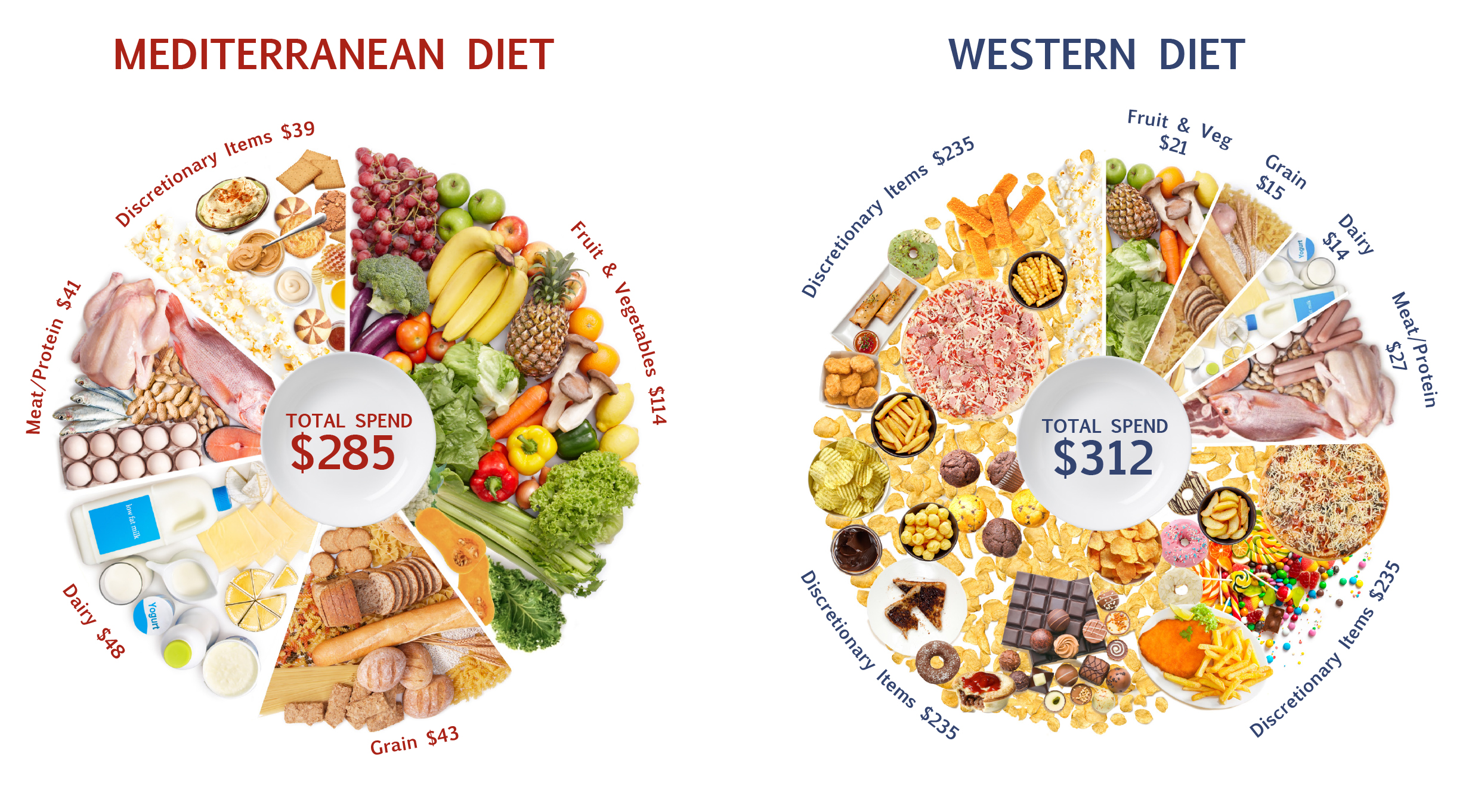Mediterranean Diet Named Most Effective Way of Eating for 2024: A Blueprint for Health and Longevity:
The Mediterranean diet, long lauded for its delicious flavors and health benefits, has recently been crowned as the most effective way of eating for 2024, according to experts, nutritionists, and research studies. For those looking to make a dietary change that prioritizes both taste and wellness, the Mediterranean diet offers a comprehensive, sustainable approach to nutrition, one that not only promotes weight loss but also contributes to long-term health, heart wellness, and even a longer life. This diet, based on the traditional eating habits of people in Mediterranean countries such as Italy, Greece, and Spain, is quickly becoming the go-to eating plan for those seeking to improve their overall quality of life in 2024 and beyond.
What is the Mediterranean Diet?
The Mediterranean diet is more than just a way of eating—it’s a lifestyle rooted in a centuries-old tradition of sharing meals, enjoying food in its simplest, freshest forms, and focusing on health-promoting, plant-based ingredients. The diet emphasizes whole, minimally processed foods, healthy fats, and lean proteins, with an emphasis on local, seasonal ingredients.
Here are the core principles of the Mediterranean diet:
- Fruits and Vegetables: The foundation of the Mediterranean diet, fruits and vegetables are consumed in abundance, providing vital nutrients, antioxidants, and fiber.
- Whole Grains: Instead of refined grains, whole grains like brown rice, quinoa, and barley are preferred, providing steady energy and promoting digestive health.
- Healthy Fats: Olive oil is the primary source of fat, rich in monounsaturated fats that reduce inflammation and support heart health. Nuts, seeds, and avocados also contribute healthy fats.
- Legumes and Nuts: Beans, lentils, chickpeas, and nuts are essential sources of plant-based protein, fiber, and healthy fats.
- Lean Proteins: Fish, particularly oily fish like salmon, sardines, and mackerel is emphasized as the main source of animal protein, with modest amounts of poultry, eggs, and dairy. Red meat is consumed sparingly.
- Herbs and Spices: Instead of relying on salt, the Mediterranean diet incorporates flavorful herbs and spices like garlic, basil, oregano, and cinnamon to enhance the taste of food.
- Moderation in Dairy: Dairy is typically enjoyed in moderation, with preference given to cheese and yogurt, especially Greek yogurt, which is high in probiotics.
This diet doesn’t focus on strict restrictions or calorie counting; instead, it encourages a balanced, varied approach to eating that prioritizes nutrient-rich, anti-inflammatory foods
The Health Benefits of the Mediterranean Diet:
Numerous studies have consistently supported the health benefits of the Mediterranean diet, making it an attractive option for anyone looking to improve their overall health in 2024. Here are some key reasons why the Mediterranean diet is being heralded as the best way of eating for the year ahead.
1. Heart Health
One of the most significant benefits of the Mediterranean diet is its impact on heart health. Research has shown that people who follow a Mediterranean eating pattern have a lower risk of heart disease, lower blood pressure, and healthier cholesterol levels. The high intake of monounsaturated fats from olive oil and nuts, along with omega-3 fatty acids from fatty fish, plays a key role in reducing inflammation and improving vascular function. The Mediterranean diet also reduces the risk of stroke and promotes overall cardiovascular wellness.
In fact, a landmark study known as the PREDIMED study, published in 2013, found that people who followed a Mediterranean diet with extra olive oil or nuts had a 30% reduction in the risk of heart disease compared to those who followed a low-fat diet.
2. Weight Loss and Weight Maintenance
For many, the Mediterranean diet is an effective strategy for weight loss and weight management. Unlike fad diets that restrict food groups or severely limit calories, the Mediterranean diet focuses on whole, nutrient-dense foods that keep you fuller longer, thus making it easier to maintain a healthy weight. The high fiber content from fruits, vegetables, whole grains, and legumes helps with satiety, while the healthy fats from olive oil and nuts support metabolism and help prevent overeating.
Studies have shown that individuals who follow the Mediterranean diet tend to have a lower body mass index (BMI) and a healthier body composition than those who follow more restrictive diets. It’s not just about losing weight—it’s about maintaining a balanced, sustainable approach to eating that promotes long-term health.
3. Reduced Risk of Chronic Diseases
The Mediterranean diet is rich in antioxidants, polyphenols, and anti-inflammatory compounds, which contribute to a lower risk of chronic diseases. Its emphasis on fruits, vegetables, whole grains, legumes, and olive oil helps fight oxidative stress and inflammation in the body, both of which are major contributors to diseases like type 2 diabetes, cancer, and Alzheimer’s disease.
The Mediterranean diet has been linked to a reduced risk of developing type 2 diabetes, with studies showing that people who follow this eating pattern have better blood sugar control and improved insulin sensitivity. Additionally, there is evidence to suggest that the Mediterranean diet can help protect against neurodegenerative conditions, including Alzheimer’s disease, by reducing inflammation and supporting brain health.
4. Improved Longevity
Research consistently shows that people who follow the Mediterranean diet tend to live longer, healthier lives. A study published in the journal BMJ in 2021 found that adherence to the Mediterranean diet was associated with a longer lifespan and a reduced risk of death from chronic diseases. The diet’s focus on nutrient-dense, anti-inflammatory foods helps to promote optimal health, reduce the risk of disease, and improve the body’s ability to fight age-related decline.
In fact, the Mediterranean diet has long been associated with the Blue Zones—regions of the world where people live notably longer and healthier lives, such as in Sardinia (Italy), Ikaria (Greece), and Okinawa (Japan). While genetics and lifestyle factors play a role, the Mediterranean diet is widely regarded as a key factor in the long life expectancy and vitality of the people in these regions.
5. Mental Health Benefits
Emerging research has also pointed to the positive effects of the Mediterranean diet on mental health. Diets rich in fruits, vegetables, and omega-3 fatty acids have been shown to have a protective effect against depression, anxiety, and cognitive decline. The Mediterranean diet’s emphasis on nutrient-dense foods and healthy fats can support brain function, reduce inflammation in the brain, and improve mood.
A 2018 study published in the journal Psychiatry Research found that people who closely followed a Mediterranean diet had a lower risk of depression and were less likely to experience anxiety. Additionally, the Mediterranean diet has been linked to a lower risk of cognitive decline and dementia, further emphasizing the brain benefits of this eating pattern.
A Sustainable Diet for 2024 and Beyond:
What sets the Mediterranean diet apart from many others is its sustainability—both for your health and for the planet. This diet encourages the consumption of seasonal, local produce and minimally processed foods, which reduces environmental impact. Additionally, the Mediterranean diet’s reliance on plant-based foods like legumes, whole grains, and vegetables makes it a more eco-friendly option compared to meat-heavy diets, aligning well with global trends toward more sustainable eating practices.
As we enter 2024, the Mediterranean diet remains a practical, enjoyable, and scientifically-backed way to nourish the body and promote overall well-being. It is not about deprivation, but about balance, variety, and enjoying food in a way that enhances both health and happiness.


You must be logged in to post a comment.